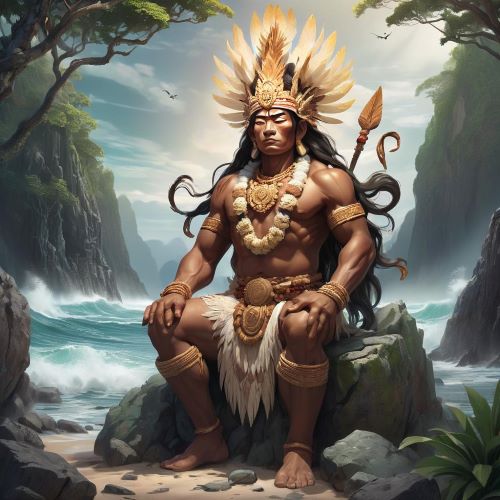The Yamana Gods are central figures in the mythology of the Yámana people, an indigenous group native to the harsh and remote lands of Tierra del Fuego in southern South America. These deities embody the natural forces, animals, and spiritual elements that shape the Yamana worldview and survival in one of the world’s most challenging environments. The gods reflect the community’s deep relationship with the sea, wind, fire, and the cold, each playing a role in the myths that explain the creation of the world and the rules that govern human behavior.
Yamana mythology, shaped by the demands of their rugged landscape, features gods that are closely tied to natural phenomena and moral lessons. The pantheon includes characters such as Watawuinewa, a creator deity associated with the sky, and Shoort, a powerful and often unpredictable spirit who controls the winds. These Yamana Gods were not just passive figures but active participants in shaping the world, punishing wrongdoing, and maintaining the balance between humans and nature. Mythical stories involving these deities often served as a means of passing down important cultural values and survival strategies from one generation to the next.
The Yamana Gods also include shape-shifting spirits and ancestral beings who could travel between the physical and spiritual worlds. These divine figures were believed to influence daily life, including weather patterns, hunting success, and personal well-being. Rituals and storytelling played an important role in maintaining the connection with these gods. Ceremonial fires, sacred dances, and seasonal gatherings allowed the Yamana people to honor the gods and seek their guidance. These spiritual practices were often integrated with community cohesion and social teaching, blending the sacred with the practical.
Unlike more structured pantheons in other world mythologies, the Yamana Gods form a fluid and symbolic system deeply rooted in oral tradition. Their stories often reflect the importance of cooperation, respect for nature, and adherence to societal norms. Some gods acted as enforcers of justice or teachers of wisdom, appearing in tales that illustrated the dangers of greed, disrespect, or disobedience. These myths not only offered explanations for the mysteries of life but also reinforced the values that allowed the Yamana people to thrive in their environment for centuries.
Modern interest in Yamana Gods has grown as researchers, anthropologists, and cultural historians work to preserve the traditions of the Yámana people. Although much of their mythology was nearly lost due to colonization and cultural disruption, efforts to revive and document their spiritual heritage have helped bring these powerful deities back into focus. Today, the Yamana Gods remain symbols of resilience, adaptation, and the deep spiritual connection between humanity and the forces of nature. Their stories continue to offer insight into how ancient cultures interpreted the world and lived in harmony with their surroundings.

